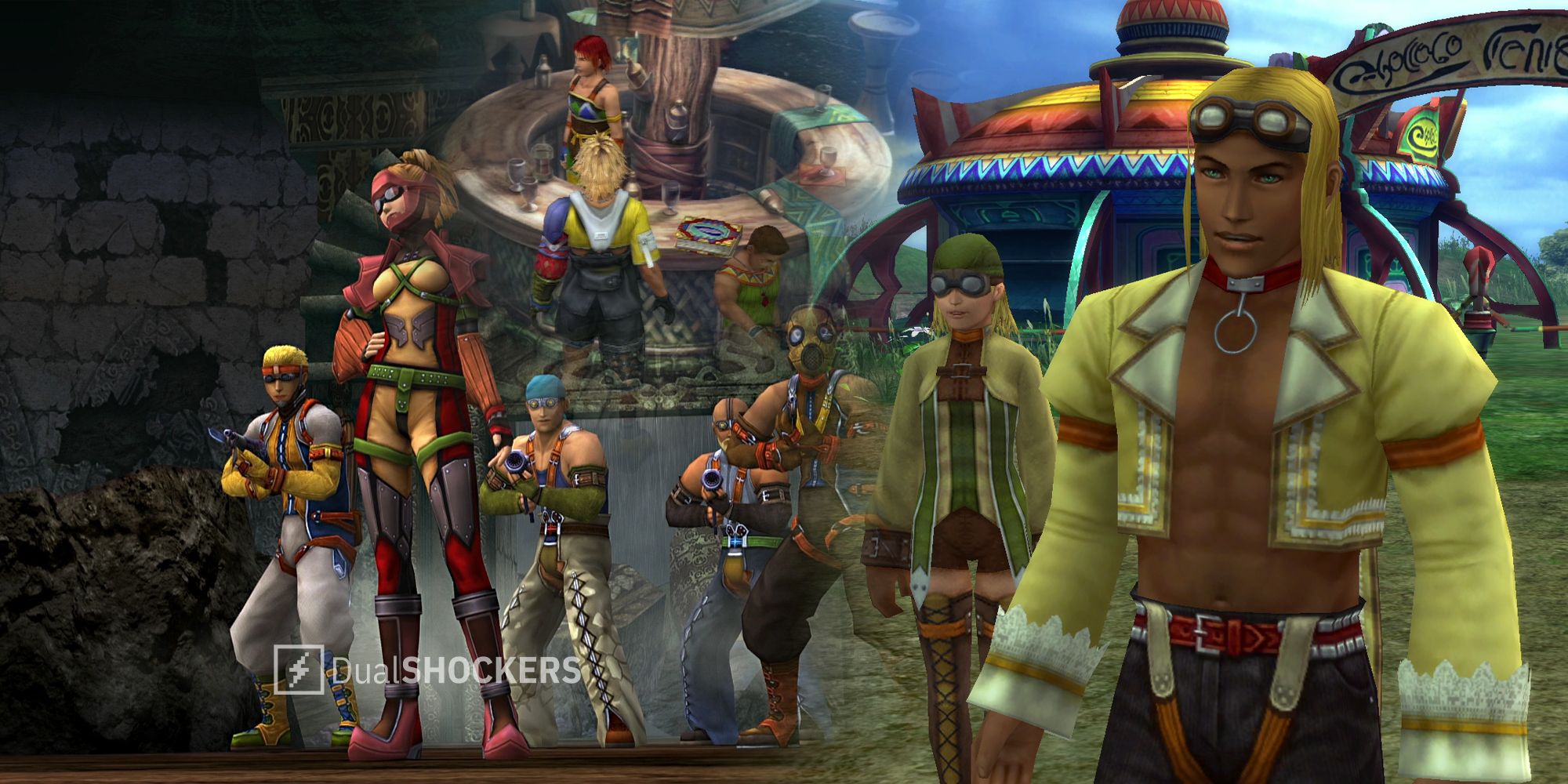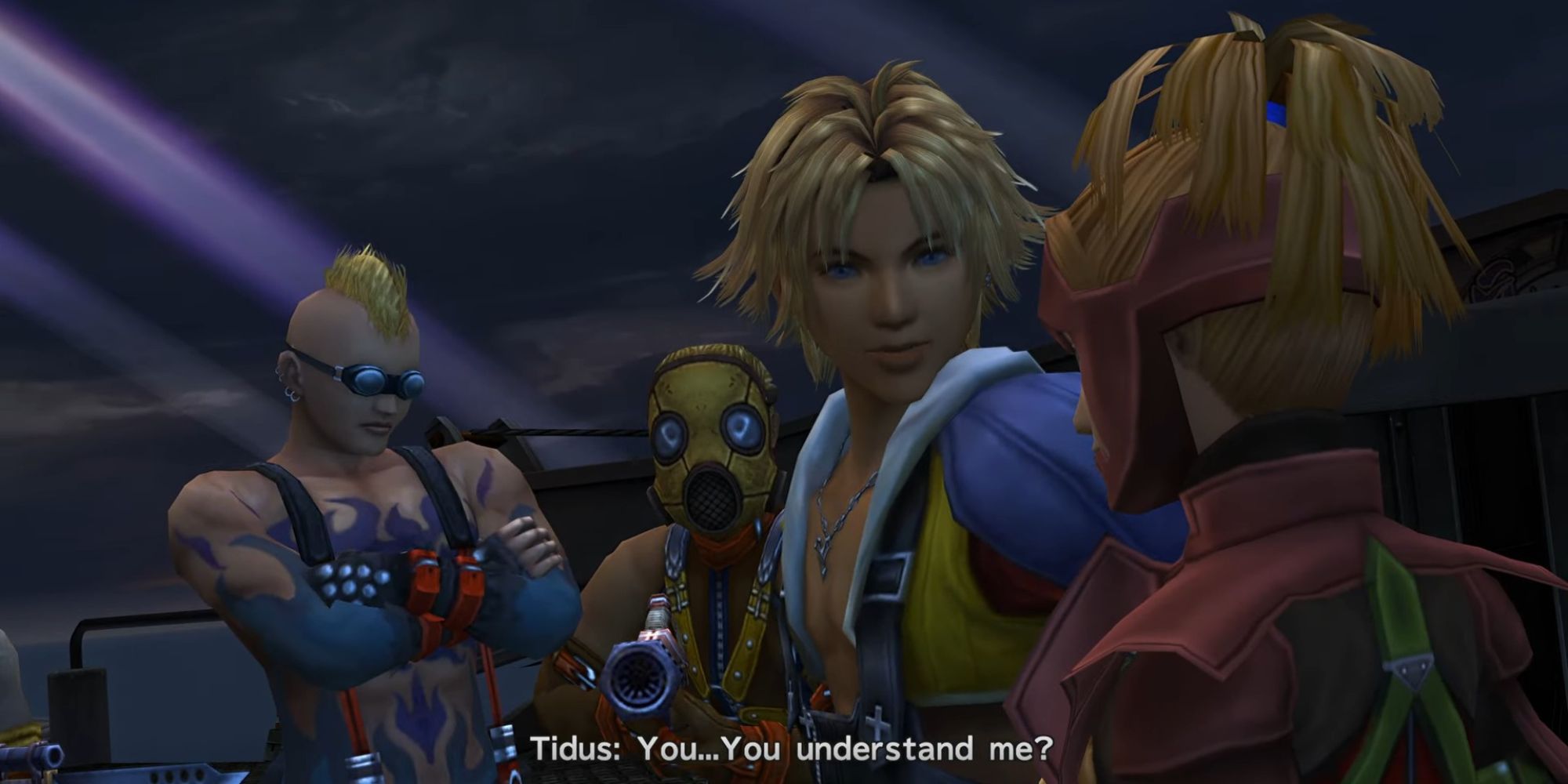Highlights
- Final Fantasy X stands out from other JRPGs by integrating a full linguistic system into its world, encouraging players to delve into the unique intricacies of the Al Bhed language and methods of expression.
- The lack of a normal language bridge in the game urges players to read between the lines and understand the Al Bhed characters beyond just words, emphasizing the importance of context in proper understanding.
- The game highlights the idea that achieving mutual understanding requires a shift in perspective and effort from the player, challenging preconceived notions and encouraging genuine engagement with different cultures and languages.
Final Fantasy games takes players on adventures to many unique worlds with diverse regions and cultures. The games tell you that each region has it’s own script and writing system, yet present all of them as English or slightly different accents of English. Telling me your game includes multiple languages and writing systems loses its purpose if I cannot fully engage with them, since i'm not really learning anything new beyond my own native bubble (I'm not an English native, but you get the picture).
Not so with Final Fantasy X, which is probably the only JRPG that goes the extra mile to integrate a full-blown linguistic system into its depiction of a world. The fictional Al Bhed tribe speak their own language, with their subtitles appearing as incomprehensible jibber-jabber. And instead of simply providing an easily accessible translation of their conlag like other Final Fantasy games would, it encourages you to explore the world and collect dictionaries to earn the right to delve into the unique intricacies of the Al Bhed language and methods of expression.
This gets established from the very first scene, where Tidus–the protagonist–is captured by a group of Al Bhed people. Throughout his capture, you can see him voicing his frustration over the lack of proper communication. The Al Bhed know this too, which is why they tend to be more 'body-expressive' when they speak, making comical poses as if they’re swimming in mid-air, unlike the more conservative, more contained citizens of Spira. There's so much that's expressed in this scene without verbal communication, which tells you a lot about how understanding is more than just words getting thrown around.
Because of the lack of a normal language bridge, you're constantly urged to read between the lines as you try to get into the heads of the ِAl Bhed characters (at least until you get all the deciphering books, which is pretty late into the game). As someone who's studying a context-heavy language like Japanese, I’m aware that just reading the words isn't enough for proper understanding. Make no mistake, language still plays a vital role in grasping the whole picture of each scene. Part of Final Fantasy X's brilliance lies in the fact that there are always two sides to every scene and conversation. When you finally catch on to the underlying context, it becomes really mind-blowing.
In one particular scene, the Al Bhed find themselves in a tough spot, forced to destroy their own home in order to save the summoner Yuna. At first glance, their leader, Cid, seems indifferent, and he even bursts out laughing with a hearty "Gah-hah-hah-hah" as their home crumbles to pieces. The absence of a proper translation initially leads you to make assumptions about him, but when you replay the scene with a translation, you gain insight into Cid's true perspective.
He believes there's no use in shedding tears over a home constructed from machine parts when they can be rebuilt. He even encourages those around him not to succumb to tears, which is pretty empathetic, even if his outward body gestures don't quite reflect that. So eventually, you realize the real problem in achieving mutual understanding lies in your perspective, not the lack of language, and that's what the game really wants to communicate by creating that language barrier.
In other games, you can click away the conversation boxes until the characters you hate turn into the 'they were good guys all along' characters, but you aren't really learning anything by doing that. In Final Fantasy X, telling you the Al Bhed have their own moral system and reasoning isn't enough when you yourself aren't making an effort to understand them.
The message feels painfully obvious when you look at Wakka, a party member and a resident Spiran racist indoctrined to hate the Al Bhed with a passion. For Wakka, Cid seems just as bewildering and lacking in commonsense as any other Al Bhed, and laughs when Cid's home gets destroyed. He also shows a complete lack of empathy not only when he can't understand Al Bhed language but even in normal conversations with bilingual Al Bhed like Rikku. Unlike the player, Wakka isn't making an effort to understand the Al Bhed's language and their unique mannerisms, so he ends up getting the wrong end of the stick with what they say all the time.
Of course, a lot of effort went into creating separate pronunciations for each written character in Japanese, not just the cipher in English, so it was a hell of a lot of effort to convey one idea: that you, the player, are just as responsible as the characters for letting go of your preconcieved notions while reading the game's text (or any text that's not in your native language), and you should make a genuine effort to grasp the true essence of each spoken line.
In a sea of games that depict cultural and tribal differences, I think Final Fantasy X is the only one that really tackles the core of the dilemma, and encourages you to try and question yourself before you can claim to have fully understood the story and what each side has to say.



